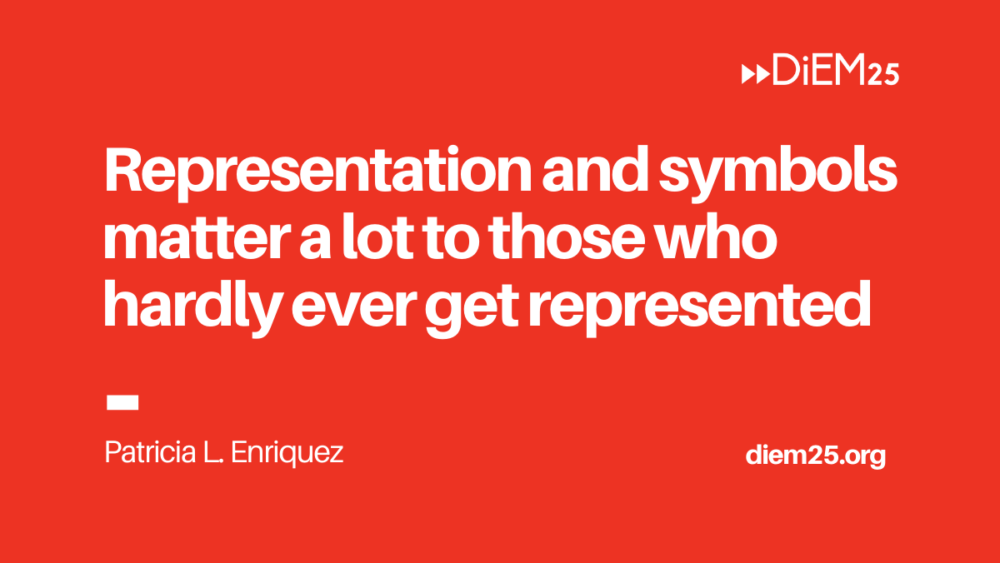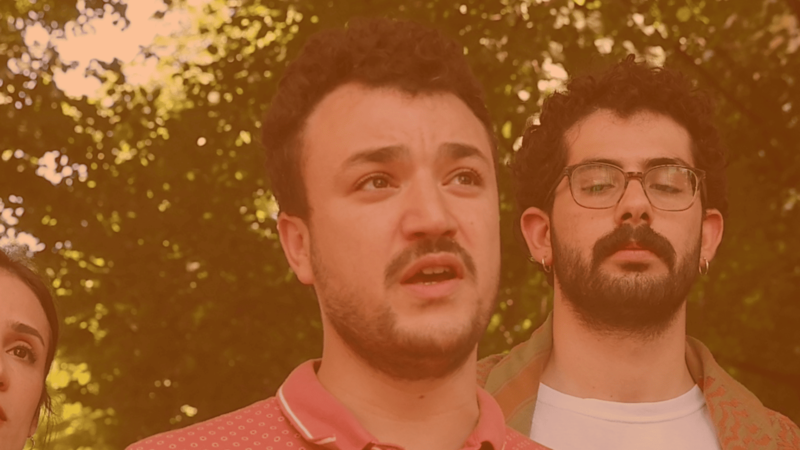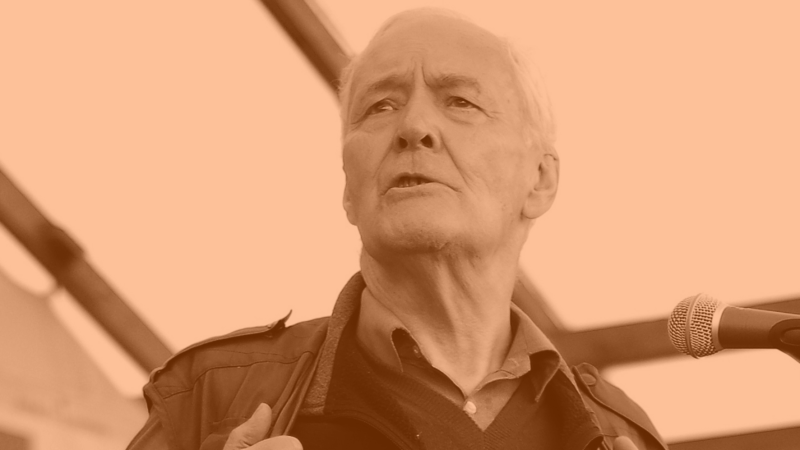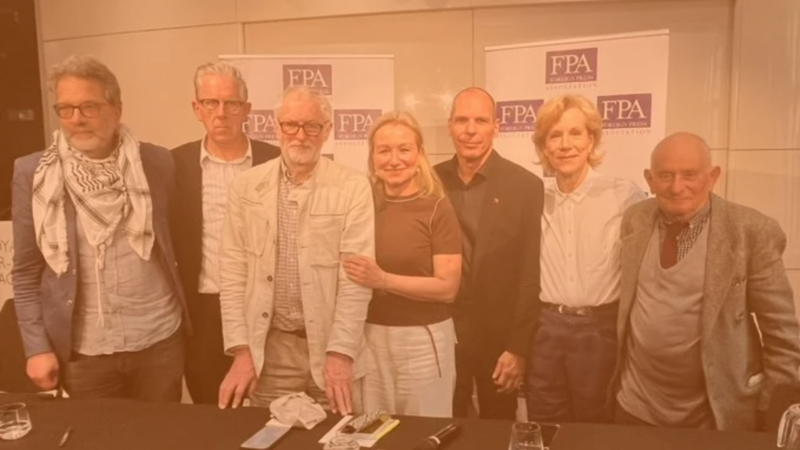To seize the moment, we must understand the ways in which various forms of oppression intersect
This article is a response to “Why Identity politics is killing the left” as an underrepresented, marginalized, and vulnerable person in male-led movements. Equal or diverse representation in movements does not automatically assure the equal ability or capacity to participate and decide.
The recent piece on “Why Identity Politics is Killing the Left” brought up two topics: (1) how symbols do not change the material conditions of people, and (2) identity politics, but failed to argue or nuance any further. This is problematic as the article’s title directly blames identity politics as the demise of the Left without any added thought.
Signs and symbols albeit “empty” are not useless
Throwing away signs and symbols and calling them “empty” completely disregards and erases what our comrades and allies in the USA, specifically black, and LGBTQ+ grassroots movements, and people all over the world have contributed to the struggle to ensure political positions and strategies that help us all. Lest we forget, without the symbolic empowerment through Trump, white supremacy and fascism in the USA would not have grown the way it did. The symbolism surrounding Trump and “Trumpism” led to the horrific current events in the US, most recently the storming of the Capitol, and has also spread all over the world such as in Japan, India, and other places in between.
Sans the lack of nuance in the original piece, I argue that there is value in the “empty” symbolic significance of having, even just in itself, a woman in a position of power, a BIPOC in decision-making spaces, an LGBTQ+ person up on podiums, or people with different abilities or are neurodivergent delivering key speeches. This is a reality that privileged members of society, especially cis-heterosexual (white, able-bodied, neurotypical, or passing as any or all of these) men, do not realize when they have been represented in every space and medium all of their lives. Representation and symbols matter a lot to those who hardly ever get represented because the reality that more than half of the world are not cis-heterosexual men isn’t reflected at all anywhere else.
Saying that empty symbols are useless doesn’t problematise how we define symbols and the lenses we use to inform ourselves. For example, we do not throw out democracy because of how it has become more about electoral politics, but we consciously struggle to define and redefine these “symbols” and means to reflect a world that is rooted in justice and equity.
Global struggle
Movements have shifted from not only locally organised groups to a larger network of unity all around the world towards a global struggle for justice and change. This was brought about by various forms of oppression that have continuously been expanding their machinery and reach. This has been done in ways that are more insidious than before and deeply seating itself exposing the centuries, and even millennia-old systems that afforded it its place in humanity’s history.
The protests and boycott against Amazon is an example of the wide reach and different expressions of oppression not tied to class alone. This can be analyzed through the distinctions of intersectional issues. We cannot with any conviction truly say that the experiences of workers and small business owners in India and all over the world who joined the (#MakeAmazonPay) protests of workers in America have similar conditions and experiences of oppression. Just because people gathered under one banner does not erase their intersectional issues because it is precisely in these differences that alliances are needed in the forefront to lead the struggle.
Movements that were mostly class informed have always been heavily intertwined with race and gender, while other differentiations that have left the rest behind in the struggle are continuously being uncovered as we fight for our place in the world, and even at the “class only” table. In the absence of sharing that space which we have equally contributed to, and carried on our backs, we create our own.
The lack of understanding of how diverse the revolutionary subjects are is what made the Left fail
In the sincerity and empathy towards fighting for justice and change, we align ourselves to help and inform each other to be stronger and better as the enemy has continuously transformed itself as well. Spaces for dialogue, collaboration, albeit the obvious non-homogeneity of any group of people, are spaces to maturely, transparently, and responsibly hold each of us accountable to each other. The lack of shared violent experiences and generations of trauma and oppression should not be a problem when empathy and sincerity towards addressing these issues are at the core of the movement, and not fighting over power.
If we fail to acknowledge developments in social theory, we will not be able to explain how workers are oppressed in the 21st century where material work in many areas of the economy is not there anymore. And in as much as many agree that we should not be oppressed on the basis of our sex, gender, race, abilities, neurodiversity, the blindness to our own potential sexism, misogyny, racism, ableism, and the like, supersedes the actual work that needs to be done to remove these oppressions that the rest of their allies face.
Identity politics and intersectional feminism moves us forward
In order to understand and remain politically relevant in the struggle, one must realise that the intersections of oppressions are important to bring forward, and seize the moment — to inform one’s self, or else fall behind. It is basic knowledge that identities alone do not equate to emancipation for all and that identity in itself is not the end of the discussion. If one truly understands identity politics and intersectional feminism, this is common-sense. Only those who fight about the gaps in discussions that are equally present in any and all political theories are either extremely uninformed or willfully pit themselves against allies in a complex socio-political-economic issue instead of attacking the common enemy.
If a framework or theory has been co-opted by hegemonic powers, it does not mean that the framework is the problem. We problematize the co-optation that has precisely reduced it to “symbols” which, again, doesn’t mean that symbols are useless. They reduce it precisely because they know how powerful symbols are. Gramsci talks about hegemony and how public opinion is formed alluding a lot to symbols.
There is no simple, or blanket solution. It is in these differences that we commit ourselves to fight everything, everywhere, together.
Even within people who share similar material conditions, there are differences, and the only reality that’s truly shared among those people with different material conditions and political identities is oppression.
The views and opinions expressed here are those of the author and do not necessarily reflect DiEM25’s official policies or positions.
Do you want to be informed of DiEM25's actions? Sign up here















